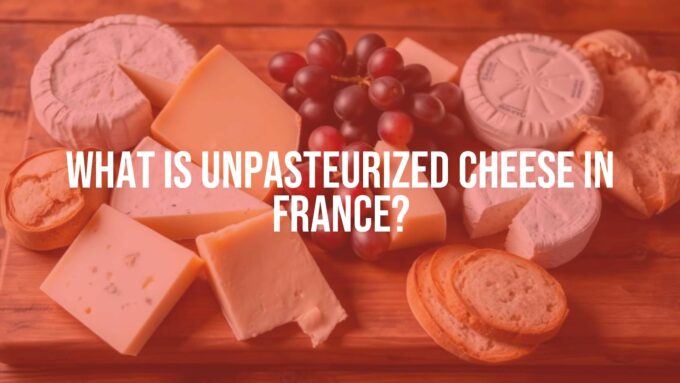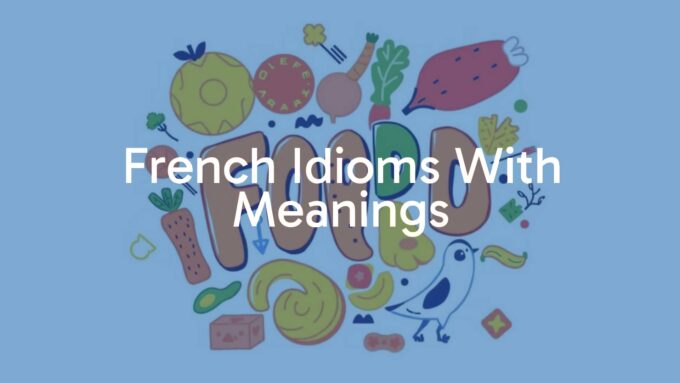Learning French is more than verbs and polite greetings. To really connect with people and catch the tone of daily talk, you need slang. So, what are current French slang phrases? They are the lively, informal words and expressions, often called argot, that show up in everyday chats and reflect culture, age groups, and local habits. These phrases help you sound natural, follow pop culture, and build closer ties with French speakers. From cute nicknames to blunt reactions, modern French slang gives a fun and honest view of how people talk across the francophone community.
French slang keeps changing all the time, which makes it a fresh and fun part of the language. You’ll hear it on the street, online, and at casual get-togethers, very different from textbook French. Using these informal words helps you move past stiff language and talk in a smoother, more natural way. It’s not just about vocabulary; it’s about feeling the beat and mood of today’s French.

What are current French slang phrases?
Current French slang phrases are the informal expressions that native speakers use in daily life. You won’t see many of them in formal grammar books or official speeches. They include shortcuts, playful flips, and culture-specific terms that make spoken French sound real. They track the life of the language, changing with society and youth trends, which makes them important if you want to sound local.
These can be single words or full phrases, and they help express feelings, opinions, and quick descriptions of people and situations. Think of them like a secret handshake-once you know them, you’re part of the chat.
How does slang differ from standard French?
Slang and standard French can feel very different, like formal English versus everyday street talk. Standard French follows rules for grammar, word choice, and sentence order. It’s used in school, on official forms, and in polite speech. Slang bends those rules to make speech faster, stronger, and more shared within a group.
For example, you learn “manger” for “to eat,” but in slang people often say “bouffer,” which sounds more casual and sometimes a bit greedy. “Argent” (money) becomes “fric,” “blé,” or “thune,” each with its own feel. Slang also uses sound shortcuts, word flips (Verlan), and loans from other languages, like English and Arabic-things you rarely see in standard French. It’s like saying “How are you?” versus “What’s up?” Same idea, different vibe.
Why do French speakers use slang phrases?
People use slang to make speech feel real, quick, and expressive. Here are common reasons:
- To bond with friends and show you’re part of the same group
- To express feelings more directly, like “Ça me saoule” for “That pisses me off”
- To play with humor or irony
- To keep up with fast changes in culture and regional habits
- To follow music, movies, and social media more easily
Slang keeps speech lively and helps you say complex ideas and emotions in a short, friendly way.
Trendy French slang words and their meanings
French slang shifts all the time. New words appear while others fade. Keeping up helps you sound current. These terms show what matters to younger speakers and what’s buzzing right now.
From online shortcuts to creative flips, trendy slang adds style to everyday talk. It’s about the words and also the setting and tone. Here are some that are common today.
| Slang | Base word | Meaning | Example/Note |
|---|---|---|---|
| ouf | fou | crazy / amazing | Ce concert était ouf ! |
| chanmé | méchant | awesome | Verlan; positive meaning |
| kiffer | – (Arabic origin) | to like / to love | Je te kiffe = I like you |
| grave | – | totally / really | Grave cool = really cool |
| mec, meuf | homme, femme | guy, girl | Common in daily talk |
Youth language and words trending now
Youth slang in France is creative, short, and sometimes a bit rule-breaking. “Ouf” means “crazy/wow” (from Verlan of “fou“). “Chanmé” comes from “méchant” but means “awesome.” “
“Kiffer” (Arabic origin) is a go-to verb for “to like”: “Je kiffe ce groupe” (I like this band). “Grave” now works as an intensifier, like “really”: “grave cool.” “Mec” (guy) and “meuf” (girl) are still very common. You’ll hear these often in media and daily chats.
Verlan: slang by reversing syllables
Verlan flips the parts of a word to make a new one. The name comes from “l’envers” (reverse). It’s a word game that native speakers often catch right away.

Classic Verlan includes “meuf” (from “femme“), “chelou” (from “louche“-shady/weird), and “ouf” (from “fou“). “Teuf” means party (from “fête“), and though it’s older, it still shows up. Newer items include “vénère” (from “énervé“-angry) and “pécho” (from “choper“-to catch/pick up), which can mean dating, buying drugs, or sleeping with someone. Verlan shows how playful and flexible French slang can be.
French texting and internet slang
Online French uses short forms and acronyms to type fast. Many mirror English internet slang, and some are unique to French.
- mdr = mort de rire (lol)
- ptdr = pété de rire (rofl)
- slt = salut (hi)
- stp = s’il te plaît (please)
- tkt = t’inquiète (don’t worry)
- a+ = à plus (tard) (see you later)
- A2M1 = à demain (see you tomorrow)
- dak = d’accord (OK)
- oklm = au calme (chill/relaxed)
These quick forms save time and help you blend into online chats with French speakers.
Popular French slang phrases in daily conversations
Beyond single words, set phrases are common in daily talk. Learning them helps you greet people, react, and share opinions in a natural way.
From casual hellos to strong reactions, these sayings make small talk easy and help you catch the flow of spoken French.
Expressions for greeting and checking in
Beyond “Bonjour” and “Comment ça va ?“, you’ll hear:
- Wesh – “Yo/What’s up?” (very casual)
- Coucou – “Hey there!” (friendly, cute)
- Ça roule ? – “All good?” Reply: “Oui, ça roule !“
- Ça baigne ? – “Everything okay?”
- Nickel ! / Impec ! – “Perfect!”
These greetings feel warm and relaxed, great for friends and peers.
Current slang for saying goodbye
For casual goodbyes beyond “Au revoir“:
- Salut – works for “hi” and “bye” with friends
- À plus / À plus tard – “see you later” (often “a+” in texts)
- Je me casse ! – “I’m out of here!” (very informal)
- Laisse tomber – “Forget it/Drop it” (can end a topic)
Pick the tone based on how close you are and how relaxed the setting is.
Phrases to express agreement and disagreement
To agree with energy:
- Carrément ! – Totally!
- Grave ! – Absolutely!
- C’est de la balle ! / Ça déchire ! – It’s great!
- Nickel ! / Impec ! – Perfect!
- Ça roule ! – OK, that works!
To disagree or show disapproval:
- Bof – Meh/so-so
- C’est naze – That’s lame
- Ça craint – That sucks / Not cool
- C’est dégueu – That’s gross
- C’est n’importe quoi ! – That’s nonsense!
Slang for expressing surprise or excitement
For surprise or big excitement:
- Ouf ! – Crazy/insane (in a good way)
- C’est le pied ! – That’s awesome!
- Un truc de ouf ! – That’s wild!
- C’est la bombe ! – That’s the bomb!
- Chouette ! / Trop cool ! – So cool!
- La vache ! – Wow!/OMG!
These phrases add strong feeling to your reactions and keep the chat lively.
French slang phrases about emotions and relationships
Feelings and relationships inspire a lot of slang, because people like simple, close ways to talk about love, friendship, and frustration. These phrases have a relaxed and personal tone, which fits well in private or friendly settings.
From jokes to caring words or sharp remarks, learning this set of phrases is very helpful for daily social life in French.

Phrases to show affection or attraction
For dating, flirting, or liking someone, try:
- Je te kiffe – I like you (casual)
- Flasher sur quelqu’un – To have a crush on someone
- Canon – Hot/very attractive
- Beau gosse – Good-looking guy
- Draguer – To flirt
These choices sound modern and light, good for friendly or romantic talk without being too serious.
Expressions for friends and friendship
For friends, you’ll hear:
- Pote – Friend/buddy (for any gender)
- Frérot – Bro (literally “little brother”)
- Gros – Bro (literally “big”)
- T’es le sang – You’re like family to me
- Mon vieux – A friendly term between male friends
- Quebec: chum (boyfriend/pal), blonde (girlfriend)
These words show how close and warm friendships can be in French-speaking places.
Slang to describe irritations and annoyance
For annoyance, stronger than “C’est ennuyeux“:
- Chiant(e) – Annoying/a pain
- Ça me saoule ! – That pisses me off!
- Ça me gonfle ! – That annoys me!
- Relou (from lourd) – Annoying/a drag
- Arrête de déconner ! – Stop messing around!
- Tu me prends la tête ! – You’re getting on my nerves!
- Avoir le seum – To be mad/pissed (common in Paris)
French slang for everyday activities and objects
Daily life also feeds slang. People use short, funny, or vivid words for work, food, travel, and stuff. This makes talk quicker and more colorful.
Knowing these helps you handle daily tasks and chats more easily in a French-speaking place.
Colloquial verbs for daily actions
Common slang verbs include:
- Bouffer / grailler – to eat (casual, sometimes greedy)
- Casser la croûte – to have a snack
- Bosser / taffer – to work
- Bachoter – to cram (for an exam)
- Glander – to loaf/do nothing
- Avoir la flemme – to feel too lazy to do something
- Pioncer / roupiller – to snooze
- Piquer – to steal (informal alternative to voler)
Slang for places, money, and common things
Useful nouns you’ll hear:
- Money: fric, blé, pognon, thune; euros as balles (bucks)
- Paris: Paname
- Car: bagnole, caisse
- Clothes: fringues, sapes
- Book: bouquin
- Fridge: frigo
- Toilets: chiottes
- Thing/thingy: truc, machin
Regional and cultural variation in French slang
French has many local versions of slang. What is common in Paris may be rare or different in Provence, Belgium, or Quebec. These differences show how local life shapes language.
Looking at these local twists helps you understand people better and connect with them where they live.
Parisian slang versus provincial expressions
Paris often sets trends, and many Verlan words like “meuf” and “chelou” spread from there. Parisian slang can be direct, shaped by big-city life. The phrase “Avoir le seum” (to be pissed) is strongly linked to Paris youth.
Outside Paris, you’ll meet local favorites. In the north (Hauts-de-France), “Biloute” is a friendly word for “mate.” Belgian French often uses “une fois” as a filler. These local sayings help you click with people in each area.
French Canadian slang: similarities and differences
Québécois slang shares roots with European French but also grew in its own way in North America. Some words differ:
- char – car (France: bagnole / caisse)
- blonde – girlfriend
- chum – boyfriend/pal
Quebec is also known for strong religious-based swear words called “sacres” like “osti” and “tabarnak.” Beyond that, you’ll hear “C’est le fun” (It’s awesome), “Jaser” (to chat), and “Pas pire” (not bad). Also, “déjeuner” means breakfast in Quebec but lunch in France. These changes show the wide variety within French-speaking communities.
Tips for mastering current French slang
Slang is best learned by exposure and use. Go beyond the textbook and listen to real speech where these words live. Keep an open ear, try new phrases, and build confidence step by step.
Here are some simple ways to practice, plus tools you can use, and common mistakes to avoid.
Best ways to practice and remember slang phrases
- Use real media: watch recent French shows and films (e.g., “Lupin”), listen to current music, and follow French creators on social media. Notice tone and body language.
- Speak with natives: find language partners online or in person. Ask what phrases mean and when to use them.
- Make notes: build a small personal dictionary or flashcards with meaning and an example you actually heard. Review often.
The more you see, hear, and try slang in natural settings, the more it sticks.
Recommended resources and guides
Beyond standard textbooks, use online tools and modern media. Sites and blogs like Rosetta Stone, Lingopie, and French Today often post updated slang lists with audio. Berlitz also offers detailed lists of casual terms.
Streaming platforms such as Netflix have many French series and films rich in real talk, especially youth shows and comedies. YouTube channels by native speakers (vlogs, culture talks) are great for hearing slang in action. Apps like Tandem connect you with native speakers for practice. Also, listen to popular French music; lyrics often use new slang.
Mistakes to avoid when using French slang
- Using slang in formal situations: avoid slang at work, in school settings, or with people you address as “vous.”
- Translating English slang word-for-word: meanings rarely match exactly and could sound odd or rude.
- Using regional swears in the wrong place: for example, Quebec religious swears are not OK in France.
- Sounding dated: slang changes fast; some words feel old after a short time. French Today’s Olivier Karfis points out many modern items are used only by young people and can fade quickly.
- Overdoing it: sprinkle slang naturally. Listen first, then use a few phrases that fit you.
Frequently asked questions about French slang phrases
French slang (argot) can confuse learners because it changes fast and varies by region and age. Here are clear answers to common questions so you can use slang with confidence.
Should slang be used in formal settings?
No. Keep slang out of formal French. Use standard grammar and vocabulary in professional spaces, school, official messages, and with strangers or people in authority. Slang can sound rude or unprofessional there.
Some mild informal words may appear in relaxed business talk, but if you’re unsure, choose standard French. Match your language to your audience and setting.
Are slang phrases understood everywhere in France?
Not always. Some slang is widely known thanks to media, but many items are regional or linked to age groups. A teen in Marseille might use words that an older person in Brittany doesn’t know.
Differences grow across countries. In Quebec, Switzerland, and parts of Africa, French slang can be quite different. Learning slang helps a lot, but remember reach and meaning vary by place, age, and community.
Can slang be used safely as a learner?
Yes-if you start small and pay attention to context. Begin by recognizing slang, learning meanings, and noticing where and with whom it’s used. Then try a few phrases with friends or language partners who can give feedback.
A trusted native speaker can explain shades of meaning and advise on what’s OK. Avoid vulgar terms until you’re very sure. If you feel unsure, switch to standard French. Making mistakes is part of learning, and you’ll improve as you listen and practice more.













Leave a comment